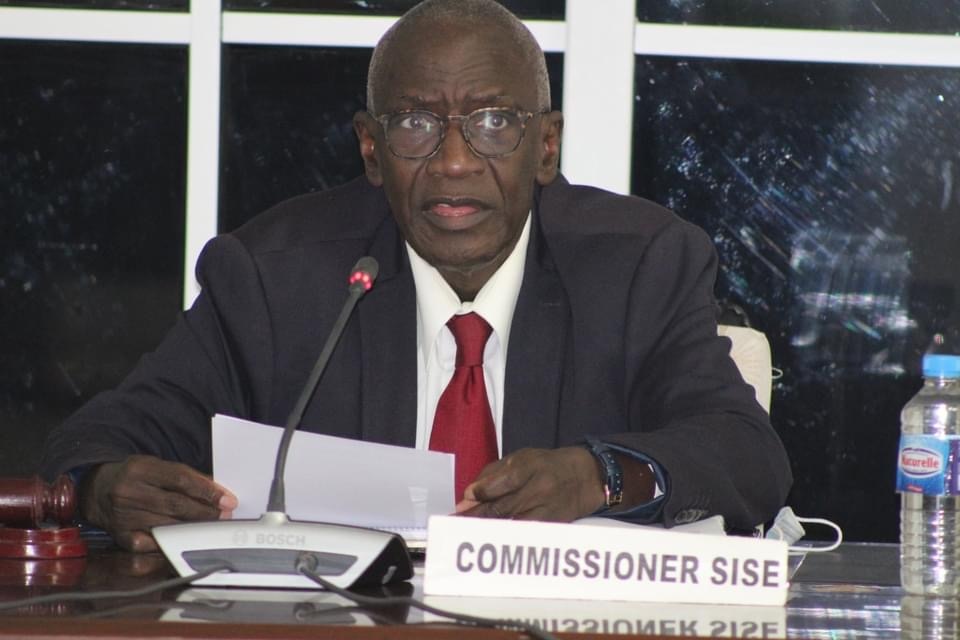
TRRC Chairman
By Mustapha Ceesay
The Truth, Reconciliation and Reparations Commission (TRRC) has recommended the setting up of scholarship schemes for students who had their schooling interrupted.
TRRC said the scholarship schemes would enable them to complete their education and become ‘productive and self- reliant’ members of the society.
“Scholarship schemes should be provided for students who have had their schooling interrupted to enable them complete their education and become productive and self- reliant members of society,” the commission recommended.
The commission also urged the government to seek technical assistance from the international community to identify new mass graves that could not have been identified during its work.
“Engage with the international community to seek technical assistance in providing support to accelerate the identification of new mass graves and provide the necessary equipment to detect their location, as in several areas the identification of mass graves was not possible,” TRRC said.
Below are the several other recommendations the commission made on reparations and reconciliation.
· Put in place a mechanism to identify the burial sites of victims and conduct proper identification of their remains to be given to their families for proper burial.
· Post TRRC the new entity on Reparations should adopt all necessary measures to ensure the universal registration of victims in order to know the full extent of victimhood in the country and provide them with reparation.
· Ensure that victims for reparations should continue beyond the conclusion of the work of the TRRC to ensure all victims are part of the reparations programme, even if they make a complaint at a later stage.
· Reparations: As a result of the funding gap in the granting of Reparations to victims the Commission now herein with reference to Section 15(5) of the TRRC Act, requires the Government of The Gambia to pay the outstanding amounts as indicated below to complete the final reparations package for all the victims as soon as possible.
o Pay the outstanding cost of the pro-rata payments for final Reparations amounting to D168, 820,831 (One hundred and sixty eight million, eight hundred and twenty thousand, eight hundred and thirty one Dalasis) out of a total Reparations bill of which stands at D205, 820,780 (Two hundred and five million, eight hundred and twenty thousand, seven hundred and eight Dalasis),
o Pay the sum of D32, 400,000 (Thirty two million, four hundred thousand Dalasis) to the West African Migrants and other non-Gambian nationals. This amount is not reflected in the outstanding payment indicated in 1 above. These reparations payments to these victims are to be paid through their respective governments as soon as possible.
o Recognise the supplementary list of victims provided and grant them reparations in line with the provided guidelines on reparations.
· Victims who are permanently incapacitated and are suffering from physical and mental conditions should be provided with free medical care in public facilities for the rest of their lives.
· The Gambia National Army should grant honourable discharges to those officers who were unlawfully dismissed from the army.
· The personnel management office should look into the cases of those civil servants who were unlawfully dismissed and denied their pensions and make arrangements so that they get their pension benefits.
· Renaming of Arch 22 to Memorial Arch: The government should rename Arch 22 to Memorial Arch and give the NCAC overall responsibility for the management and execution of the project.
· Seek support to provide capacity building and develop technical and human resources on forensic investigations. This capacity building should include training and certification for personnel on forensic anthropology, in accordance with international standards.
· The Government should establish a Peace and Reconciliation Commission with a clear mandate to promote peace, reconciliation and healing and foster social cohesion. The Commission should have structures at the decentralised level to ensure that all parts of the country are involved.
· The institutional reforms proposed by the TRRC should be implemented as they are an important component in the reconciliation processes of the country.
· The National Council for Arts and Culture (NCAC) and the National Council for Civic Education (NCCE) should work together to revitalise the joking relationships culture to enhance indigenous knowledge of shared norms and values that are central to peace making and to averting conflict.
· The faith based organisations should play a frontline role in promoting healing and reconciliation in The Gambia.
· Partners who have signed MoU’s with the TRRC need to respect the agreements in their respective MoU to ensure that the gains made are not lost and that the country heals and reconciles.
· The National Youth Council should promote national healing and reconciliation through its peace organisations and networks.
· Gambian organisations in the Diaspora need to follow-up on agreements and recommendations emanating out of the 2019 Diaspora engagement.
· The United Nations system in the country and the international community who have invested so much in the TRRC processes have an important monitoring role to ensure that post TRRC agreements and mechanisms are implemented.
The above recommendations of the commission are contained in Volume 16 of its report on Reparations and Reconciliation submitted to President Adama Barrow in November and made public in December 2021. The Government is expected to issue a white paper within 6 months of receipt of the report.

